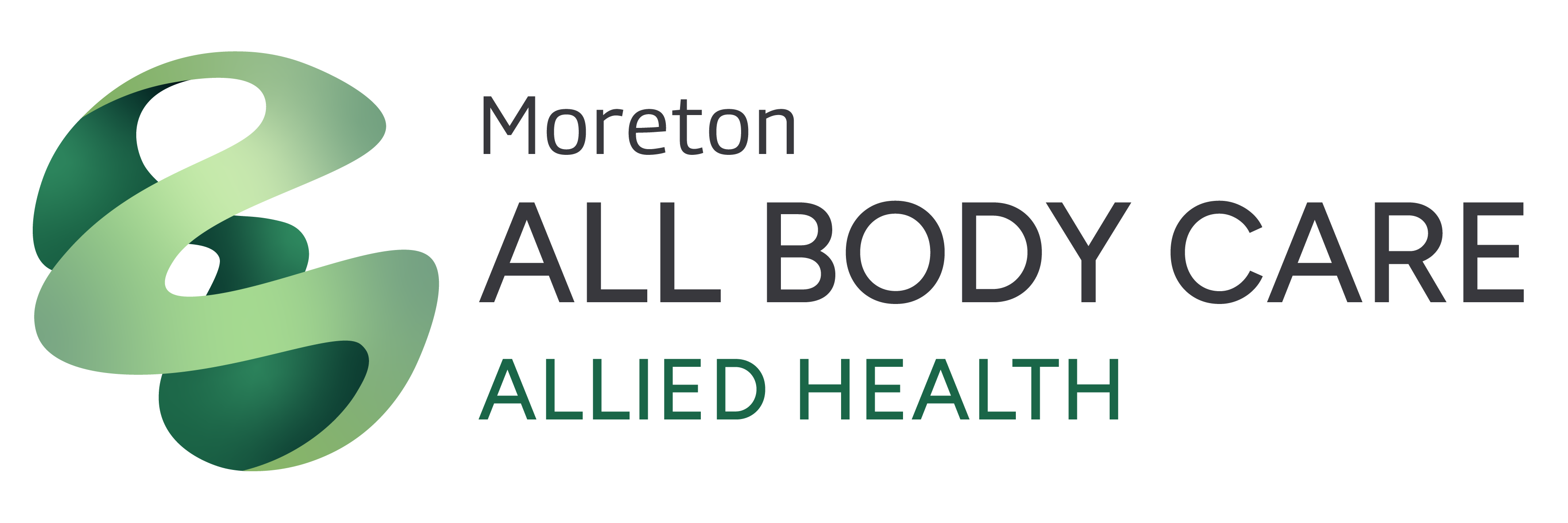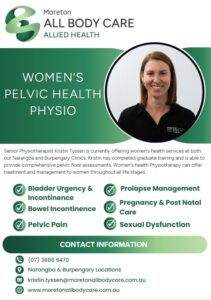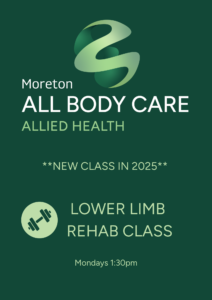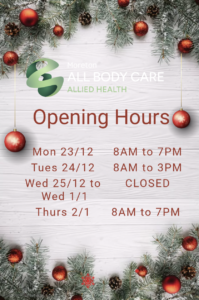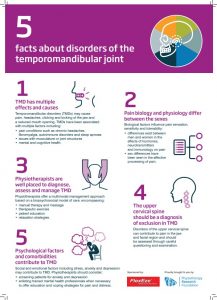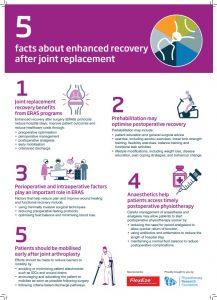New Class for 2025!
We have upgraded one of our classes to bring you the new Lower Limb Rehab Class. To find more information about this class, please find the page on the Exercise Physiology tab!
Christmas Trading Hours 2024
Please note:
We will be closed at Narangba on 24th December 2024 and at Beachmere on 2nd January 2025.
Cardiac Rehab with Exercise Physiologists
Ca rdiac rehabilitation (CR) is a medically supervised program designed to improve heart health after a cardiac event, surgery, or diagnosis of a heart condition. Our exercise physiologists specialise in safe, tailored exercise plans that support recovery and improve cardiovascular strength, endurance, and overall wellness.
rdiac rehabilitation (CR) is a medically supervised program designed to improve heart health after a cardiac event, surgery, or diagnosis of a heart condition. Our exercise physiologists specialise in safe, tailored exercise plans that support recovery and improve cardiovascular strength, endurance, and overall wellness.
Benefits of Cardiac Rehabilitation with an Exercise Physiologist
1. Improved Cardiovascular Health
Exercise physiologists develop personalised exercise programs that strengthen the heart, improve circulation, and promote healthy blood pressure levels. With guided support, CR can lower your risk of future cardiac events.
2. Increased Physical Fitness and Stamina
Regular, supervised exercise helps build strength and endurance, reducing fatigue and increasing your ability to perform daily activities without discomfort.
3. Better Cholesterol and Blood Sugar Control
CR exercise programs often improve cholesterol profiles and help regulate blood sugar, which is beneficial for heart health. Exercise physiologists can also guide you on lifestyle changes to maintain these improvements.
4. Reduced Anxiety and Depression
Cardiac events can lead to emotional distress, but CR has been shown to reduce symptoms of anxiety and depression, leading to improved quality of life. The structured, supportive environment promotes positive mental well-being as you work toward recovery.
At Moreton All Body Care, our exercise physiologists will run 1 on 1 sessions until you are ready to attend our Cardiac Rehab group classes where you will be monitored by our exercise physiologists while you complete your own individualised programme created for you. If you would like more information, please call us on 0738886699 or book online to see an exercise physiologist using our online portal.
How can orthotics help you?
Orthotics are custom-made shoe inserts designed to support the feet, alleviate pain, and improve alignment. These are the some of the reasons our podiatrists will prescribe custom-made orthotics to our patients:
- Pain Relief: Orthotics help reduce pain in the feet, ankles, knees, and lower back by redistributing weight more evenly across your feet. They’re often used to relieve conditions like plantar fasciitis, bunions, or arthritis.
- Improved Biomechanics: By adjusting how weight is distributed, orthotics can correct biomechanical issues like flat feet or high arches, which can affect posture and gait. This improvement can help prevent injury and alleviate existing discomfort in the legs and lower back.
- Enhanced Athletic Performance: For those who are active, orthotics offer enhanced support during physical activities, reducing the risk of injuries like Achilles tendonitis or stress fractures.
- Better Mobility for Specific Conditions: People with diabetes, for instance, can benefit from orthotics as they can protect sensitive areas of the feet, reducing the risk of sores and ulcerations.
Orthotics are tailor made to your specific needs by the podiatrist, typically after they have assessed your foot, gait and current shoes. They will often use 3D scanning technology to create a precise model of your feet then create the orthotics to fit. They will make any fine adjustments you made need after trying on your new orthotics to make sure they are the right fit for the purpose.
If you would like more information or to see one of our podiatrists at Moreton All Body Care to discuss getting orthotics, please call us on 07 3888 6699 or alternatively you can book using our online portal.
How can physio help with vestibular conditions?
Did you know Physiotherapists can help with assessment and treatment of some vestibular conditions?
What is the Vestibular System?
The vestibular system, located within the inner ear, is responsible for helping you maintain balance and spatial orientation. It detects changes in movement and position, sending signals to the brain to keep you balanced. When this system is disrupted, it can lead to dizziness, vertigo, and difficulties with balance. The most common condition treated through physiotherapy is Benign Paroxysmal Positional Vertigo (BPPV).
How Vestibular Physiotherapy Can Help
Our vestibular physiotherapists use evidence-based techniques to assess and treat vestibular disorders, aiming to reduce symptoms and restore normal function. Treatment may include:
- Canalith Repositioning Maneuvers: Specific head movements to treat BPPV by relocating displaced crystals in the inner ear.
- Balance and Gait Training: Exercises designed to improve stability and reduce fall risk.
- Habituation Exercises: Gradual exposure exercises to help reduce sensitivity to motion and dizziness triggers.
- Eye and Head Coordination Exercises: Techniques to improve eye movement control and reduce dizziness with head movements.
If you have any questions in regards to vestibular physiotherapy assessment and/or treatment, please contact us on 07 3888 6699 or 07 3886 9470. You can also book online using our website portal.
5 Facts about TemporoMandibular Joint (TMJ) Disorders
At Moreton All Body Care, we have a TMJ physiotherapist that can help assess and treat your TMJ disorders. If you would like more information, please contact us on 07 3888 6699 or make a booking using our online booking portal.
Are you due for a joint replacement surgery?
Whether you are having a Total Knee Joint Replacement (TKR) or a Total Hip Joint Replacement (THR) Here is some information from the Australian Physiotherapy Association on enhancing your recovery after a joint replacement surgery that you might like to know:
All our physiotherapists at Moreton All Body Care are highly skilled to help with your recovery following a joint replacement surgery. If you would like more information or would like to book in to see one of our physiotherapists, please do not hesitate to contact us.
Which Allied Health Professional should I see?
We often find there is confusion amongst patients about who to see when booking an appointment. They are unsure exactly what it is our Allied Health Professionals do and how they are able to assist them with injuries and chronic health conditions.
Below is a brief overview of who Physiotherapists, Podiatrists & Exercise Physiologists are and also what they do in their scope of practice – hopefully this helps to clear up some of the confusion.
Physiotherapists
Physiotherapists are experts in the structure of the human body and its movement. They work with people of all ages to treat a broad range of health conditions including sports injuries
and musculoskeletal conditions as well as chronic health conditions such as diabetes, obesity, osteoarthritis and stroke. Physiotherapists are involved in the assessment, diagnosis, planning and management of patient care.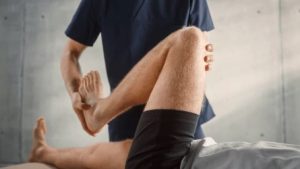
Physiotherapists assess, diagnose, plan and manage the care of patients across a broad range of areas with musculoskeletal, cardiothoracic and neurological problems. They help patients with chronic disease management, provide lifestyle modification and self-management advice, prescribe aids and appliances, prescribe and supervise exercises for both patients and carers, and provide health promotion education, occupational health assessments and injury prevention activities.
Physiotherapists can help treat a range of chronic conditions, often as part of multidisciplinary teams. They are trained to design individual programs of care that help address risk factors arising from co-morbidities and physical limitations in people with chronic conditions.
Podiatrists
A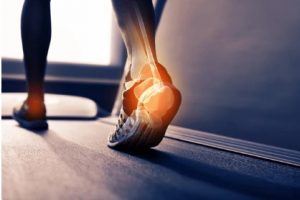 podiatrist is an expert in foot care. Podiatrists help people in the care of their lower limbs including the foot and ankle and may also be involved in supporting older people to reduce their risk of falling.
podiatrist is an expert in foot care. Podiatrists help people in the care of their lower limbs including the foot and ankle and may also be involved in supporting older people to reduce their risk of falling.
Podiatrists provide a wide range of services from the treatment of calluses to the treatment of bone and joint disorders. For conditions such as recurring sprains and chronic pain, podiatrists may prescribe foot orthoses. The podiatrist’s scope of practice includes areas such as paediatrics, diabetes, sports injuries, structural problems, treatment of the elderly as well as general foot care.
Podiatrists with additional qualifications and registration may also perform foot surgery.
Exercise Physiologists
Accredited exercise physiologists specialise in clinical exercise interventions for people with a broad range of health issues. Those people may be at risk of developing, or have existing, medical conditions and injuries. The aims of exercise physiology interventions are to prevent or manage acute, sub- acute or chronic disease or injury, and assist in restoring one’s optimal physical function, health or wellness. These interventions are exercise-based and include health and physical activity education, advice and support and lifestyle modification with a strong focus on achieving behavioural change.
have existing, medical conditions and injuries. The aims of exercise physiology interventions are to prevent or manage acute, sub- acute or chronic disease or injury, and assist in restoring one’s optimal physical function, health or wellness. These interventions are exercise-based and include health and physical activity education, advice and support and lifestyle modification with a strong focus on achieving behavioural change.
Accredited exercise physiologists offer a range of services which include behavioural coaching, health education, exercise counselling and physical rehabilitation. Services include the prescription of tailored exercise programs, promoting leisure-time and incidental activity, and counselling to reduce sedentary behaviours. This will include an assessment to ensure the activity is safe, effective and likely to be maintained in the long term.
Accredited exercise physiologists do not provide invasive services (except for point of care testing), diagnosis, joint manipulation or pharmaceutical medicines.
So who do I see?
Some conditions may only require the intervention of one Allied Health Professional while others can benefit from a multi-disciplinary approach. At Moreton All Body Care it is always our goal to ensure that you are able to reach & maintain your optimum level of health and wellness. With this in mind, when you ring and make your first appointment with us, the more information you are able to provide us with at the time of booking, the better we are able to book you in with the appropriate professional.
Once you have had your first appointment, your treating practitioner will discuss with you your ongoing treatment plan and if, and when, you would benefit from seeing any of our other Allied Health professionals. Our Allied Health staff work closely together to ensure that your care and treatment is tailored specifically to your needs, and will work with you to achieve your specific goals.
Most importantly if you have any questions about any of our services, or about Allied Health in general, please feel free to ask us.
(Health professional information courtesy of https://ahpa.com.au/)
